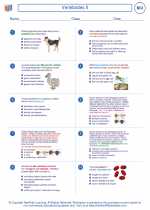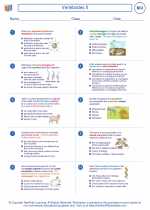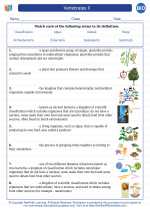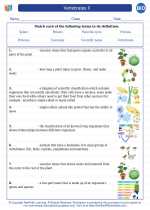Human Evolution
Human evolution is the process by which modern humans have evolved from ancestral primates. It is a fascinating and complex subject that encompasses the biological, cultural, and behavioral changes that have occurred over millions of years.
Evidence of Human Evolution
There are several lines of evidence that support the theory of human evolution:
- Fossil evidence: Fossils of early human ancestors and hominins provide a record of the physical changes that have occurred over time.
- Genetic evidence: Comparing the DNA of modern humans with that of other primates can reveal evolutionary relationships and patterns of genetic change.
- Comparative anatomy: Studying the similarities and differences in the anatomy of humans and other primates can provide insights into evolutionary relationships.
- Behavioral evidence: Observations of behavior in living primates and early human ancestors can offer clues about the evolution of human social and cognitive abilities.
Key Stages of Human Evolution
Human evolution can be divided into several key stages, each marked by significant developments and adaptations:
- Australopithecus: The earliest known hominins, such as Australopithecus afarensis (e.g. "Lucy"), exhibited traits that were transitional between apes and humans.
- Homo habilis: The first members of the genus Homo appeared around 2.8 million years ago, with larger brains and the ability to make stone tools.
- Homo erectus: This species had a more human-like body and was the first to migrate out of Africa, spreading to Asia and Europe.
- Homo neanderthalensis: Neanderthals were a closely related species that lived in Europe and Asia, and they had a sophisticated stone tool technology and evidence of symbolic behavior.
- Homo sapiens: Modern humans, Homo sapiens, emerged in Africa around 200,000 years ago and eventually spread to all corners of the globe.
Factors Affecting Human Evolution
Several factors have influenced the course of human evolution:
- Environmental changes: Shifts in climate, habitat, and food sources have driven adaptations in human ancestors.
- Social and cultural developments: The evolution of complex societies, language, and technology has shaped the behavior and biology of humans.
- Genetic drift and natural selection: Changes in the frequency of genetic traits within populations have been driven by random processes and selective pressures.
Study Guide
To deepen your understanding of human evolution, consider exploring the following topics:
- Read about specific hominin species and their key characteristics.
- Investigate the genetic evidence for human evolution, including studies of ancient DNA.
- Examine the fossil record and the ways in which paleoanthropologists interpret and analyze hominin remains.
- Explore the role of climate change and environmental shifts in driving human adaptations.
- Study the cultural and technological developments that distinguish Homo sapiens from earlier hominin species.
By delving into these areas of study, you can gain a comprehensive understanding of the processes and patterns of human evolution.
.◂Biology Worksheets and Study Guides High School. Vertebrates II
Worksheet/Answer key Vertebrates II
Vertebrates II  Worksheet/Answer key
Worksheet/Answer key Vertebrates II
Vertebrates II  Worksheet/Answer key
Worksheet/Answer key Vertebrates II
Vertebrates II  Vocabulary/Answer key
Vocabulary/Answer key Vertebrates II
Vertebrates II  Vocabulary/Answer key
Vocabulary/Answer key Vertebrates II
Vertebrates II  Vocabulary/Answer key
Vocabulary/Answer key Vertebrates II
Vertebrates II 

 Worksheet/Answer key
Worksheet/Answer key
 Worksheet/Answer key
Worksheet/Answer key
 Vocabulary/Answer key
Vocabulary/Answer key
 Vocabulary/Answer key
Vocabulary/Answer key
 Vocabulary/Answer key
Vocabulary/Answer key

The resources above cover the following skills:
LIFE SCIENCE (NGSS)
Ecosystems: Interactions, Energy, and Dynamics
Students who demonstrate understanding can:
Use mathematical representations to support and revise explanations based on evidence about factors affecting biodiversity and populations in ecosystems of different scales.